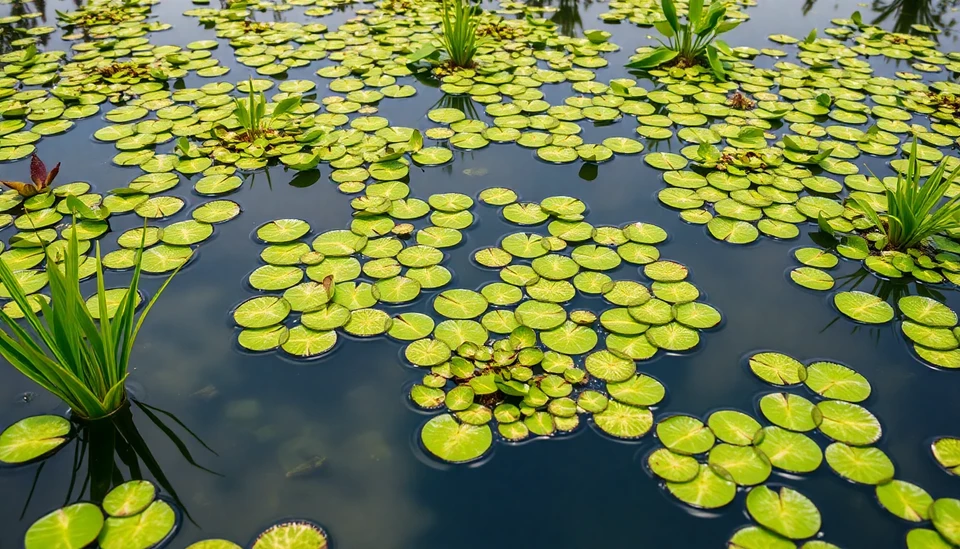
As the global urgency to combat climate change intensifies, scientists and innovators are turning their attention to a potential game-changing solution lurking in freshwater ecosystems—algae and other aquatic organisms. Researchers are exploring the possibility that these often-overlooked organisms might hold the key to developing a new superfood that could help mitigate greenhouse gas emissions and provide a sustainable food source.
The concept is grounded in the remarkable capabilities of algae and other pond-dwelling organisms to consume carbon dioxide, the principal greenhouse gas contributing to global warming. Algae are not only prolific carbon users but also rich in nutrients, making them an attractive candidate for sustainable food production.
Various scientific experiments have revealed that cultivating algae can significantly reduce carbon footprints. When grown in controlled environments, these organisms can transform CO2 into biomass, which can then be harvested for food, animal feed, and biofuels. This presents a dual benefit: reducing atmospheric carbon while providing nutritious resources. The growth rates of algae can be astonishingly high, with some species doubling their biomass in just a few hours under optimal conditions.
Moreover, the cultivation of algae requires far less land and water compared to traditional crops. This could alleviate some of the stresses on agricultural land, which is increasingly under pressure from rising global populations and climate-related challenges such as droughts and floods. Using pond-based systems could help create a more resilient food production framework that is less susceptible to the vicissitudes of climate change.
Emerging companies and research institutions are at the forefront of this movement, experimenting with different strains of algae to determine which types offer the best nutritional profiles and growth conditions. Focus is not only on the cultivation aspect but also on the processing of these superfoods to enhance their palatability and bioavailability, rendering them more appealing to consumers.
In addition to nutritional benefits, the cultivation of aquatic superfoods could also promote biodiversity in freshwater ecosystems. Properly managed algae farms can support a variety of aquatic life, fostering a balanced ecological environment while simultaneously producing food. This synergy could prove critical in transitioning our food systems to ones that are more aligned with ecological principles.
As interest in health and nutrition surges, the potential market for algae-based products is exploding. Entrepreneurs are already envisioning a variety of applications for these superfoods, from protein-rich snacks to smoothies, and even innovative culinary uses in fine dining. The challenge remains to shift public perception and expand the market reach of algae-based foods from niche markets to everyday grocery shelves.
While promoting algae as a superfood represents a fantastic opportunity for both climate action and nutrition, challenges remain. Consumer skepticism, regulatory hurdles, and the need for significant market education are all critical issues that need to be addressed. Strategies for scaling production and distribution, as well as ensuring sustainability in farming practices, will be paramount in making this vision a reality.
As researchers continue to unveil the numerous advantages that algae and their fellow aquatic charms can offer, the world may be on the cusp of a revolutionary shift in how we approach both food security and climate change mitigation. The promise of portals to health and sustainability, all beginning in our ponds, beckons us to explore this uncharted territory.
While the road forward may be fraught with challenges, the potential benefits of embracing pond-derived superfoods could be significant. Thus, the future of sustainable food systems might just lie beneath the surface of freshwater bodies, waiting to be unlocked by innovative minds committed to fighting climate change.
As awareness grows, the global food landscape could witness an exciting metamorphosis, driven by the remarkable potential of these aquatic organisms. In a rapidly warming world, the discovery and integration of new superfoods may signify not only an environmental victory but also a taproot to a healthier population.
#ClimateChange #Superfood #SustainableFood #Algae #FoodSystems #Health #Innovation #AquaticAgriculture #CarbonCapture
Author: Sophie Bennett




